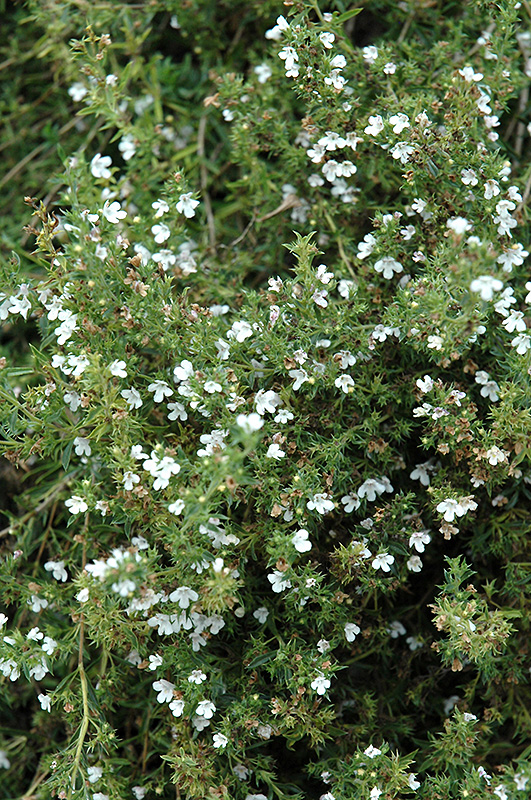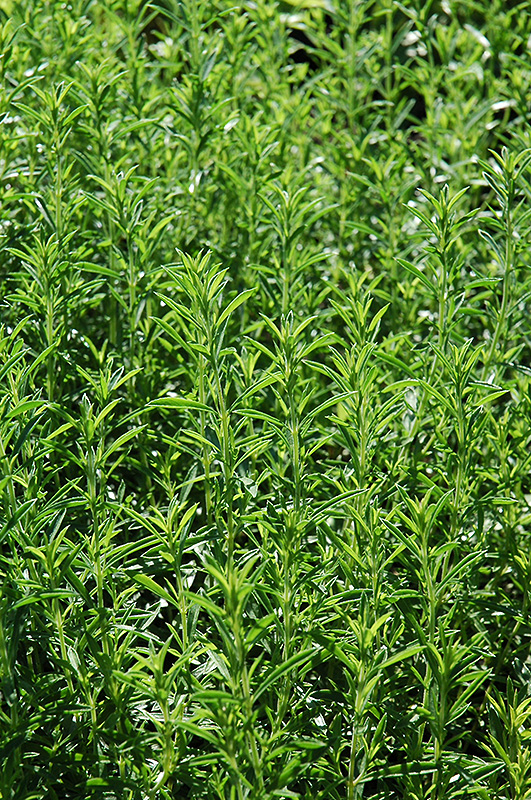Plant Height: 8 inches
Flower Height: 12 inches
Spacing: 6 inches
Sunlight:
![]()
Hardiness Zone: 6
Edible Qualities
Winter Savory is a perennial herb that is typically grown for its edible qualities, although it does have ornamental merits as well. The fragrant narrow green leaves can be harvested at any time in the season. The leaves have a savory taste and a pungent fragrance.
The leaves are most often used in the following ways:
- Cooking
- Seasoning
Features & Attributes
Winter Savory features subtle shell pink flowers in mid summer. Its fragrant narrow leaves remain green in colour throughout the season.
This is an herbaceous perennial herb with an upright spreading habit of growth. It brings an extremely fine and delicate texture to the garden composition and should be used to full effect. This plant will require occasional maintenance and upkeep, and can be pruned at anytime. Gardeners should be aware of the following characteristic(s) that may warrant special consideration;
- Spreading
Aside from its primary use as an edible, Winter Savory is sutiable for the following landscape applications;
- Herb Gardens
Planting & Growing
Winter Savory will grow to be about 8 inches tall at maturity extending to 12 inches tall with the flowers, with a spread of 8 inches. When grown in masses or used as a bedding plant, individual plants should be spaced approximately 6 inches apart. It grows at a medium rate, and under ideal conditions can be expected to live for approximately 5 years. As an herbaceous perennial, this plant will usually die back to the crown each winter, and will regrow from the base each spring. Be careful not to disturb the crown in late winter when it may not be readily seen!
This plant is quite ornamental as well as edible, and is as much at home in a landscape or flower garden as it is in a designated herb garden. It should only be grown in full sunlight. It is very adaptable to both dry and moist locations, and should do just fine under typical garden conditions. It is not particular as to soil pH, but grows best in poor soils. It is highly tolerant of urban pollution and will even thrive in inner city environments. This species is not originally from North America.


